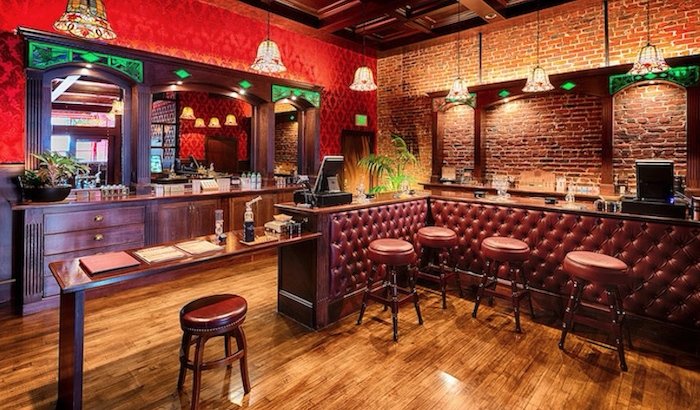
Now is the time for municipalities—as well as potential applicants—to “raise their hands.”
A meeting of the Massachusetts Cannabis Advisory Board on Friday included an update by state regulators about steps they have taken toward licensing social consumption businesses, i.e. anything from a lounge to a miniature golf course where people can get stoned.
The CAB has 25 appointed members, from backgrounds spanning policing to cultivation, who advise the Cannabis Control Commission on matters including research, public safety, and market participation. With their range of expertise, the CCC will be looking to many CABbies as the agency finally writes long-awaited regulations for social consumption licensing.
On the CCC side, commissioners Nurys Camargo and Bruce Stebbins have led a social consumption working group established last year. As they explained in Friday’s presentation to the CAB, so far, their outreach has included three public listening sessions and meetings with various stakeholder organizations—from the Massachusetts Chiefs of Police on the prohibitionist know-nothing side, to cannabis lounge operators in other states. They also sent out more than 1,000 targeted surveys, of which 142 (14%) were returned.

“A lot of our work has also been reaching out to [nine other] other jurisdictions,” Stebbins said, noting a fact-finding trip that he and Camargo took to California with staff members last year.
“The most important thing when it comes to social consumption that we heard at the public sessions, but also that we have incorporated into our long-term strategy, is education and awareness,” Camargo said. “On site consumption is very exciting, but it’s also very complicated. What we’re trying to do is get it right in Massachusetts.”
Camargo continued, “Having gone out to San Francisco and Oakland, we were able to meet with state regulators, public health officials … the Oakland cannabis regulatory committee. We were able to visit dispensaries that had on-site consumption attached, some that were grandfathered in, and some that were new.
“It’s very interesting how two different jurisdictions in one state can do it differently. San Francisco has indoor consumption, and Oakland allows for outdoor consumption, so it’s definitely going to be interesting for Massachusetts in terms of what cities and towns opt into this process once we have worked on our regulations.”
In the meantime, Stebbins urged communities to identify Social Equity and other licensees who are already operating in their communities to see if they may be interested in doing social consumption in the future. Camargo said now is the time for municipalities—as well as potential applicants—to “raise their hands.”
Per their research so far, Stebbins said something they have learned while “going through this process” is that “the standalone consumption facility business model might not work.” The commissioner described that as “a consumption facility not attached to a retail facility.” He continued, “If you look back to our earlier comments at the commission around creating a social consumption license type, we’ve talked about it in these terms: we’re mindful of public health, we’re mindful of public safety, we’re mindful of equity—but we are also looking for this to be a lucrative license type for the individuals that apply. Our social equity folks, our economic empowerment and microbusinesses—they want to pursue a license that is a lucrative business opportunity for them, or else at the end of the day we’re doing a lot of work for a license that nobody wants to apply for.”
CAB member Jeremiah MacKinnon, President and Executive Director of the Massachusetts Patient Advocacy Alliance (MPAA), pushed back on the idea of licenses for social consumption having to be tied to retail licenses as they are currently structured.
“It seems from my perspective that only having social consumption kind of attached to retailers could be limiting,” MacKinnon said. “I had thought that having social consumption be kind of standalone would be a way for equity businesses, microbusinesses, and craft growers to have a viable business because they can actually sell cannabis. And I wasn’t sure if you guys had thought that the social consumption license itself can sell cannabis or if it has to be attached to the retailer to do that function. I thought that retailing the cannabis—like a bar—and having a higher profit margin was a way to have a more lucrative business type.”
Stebbins clarified that he was referring to businesses that are merely a “straight consumption lounge,” with “no retail activity or purchase on site.” Michigan, for example, has such a license type, and it has proven to be both a failure and, unsurprisingly, unpopular.
Amanda Rositano, a CAB member and consultant with the company Soulstar Cannabis, recognized merit in the comments made by Stebbins as well as those of MacKinnon: “There’s a reason why some of the states coming on with social consumption licenses are attaching them to retail licenses.” At the same time, he added, “maybe that’s too much—maybe that’s too expensive with the infrastructure.” Rositano offered the example of “the enormous vault space that you would need to handle that.”
Laury Lucien, a cannabis attorney and entrepreneur who chairs the CAB’s Public Safety and Community Mitigation subcommittee, added an international perspective: “I know that we’ve been focusing on the United States, but I’ve traveled to places like Barcelona and Amsterdam and seen their social consumption and they have different frameworks.”
“With regard to a place like Amsterdam,” Lucien added, “retail is a big component to the viability of those social consumption locations. You have two options—you can go in, sit down, and consume, or you can do takeout. And I think that will be essential to ensuring that these companies are viable, especially since we’ve allocated those license types for equity purposes.”
In addition to social equity, the focus moving forward on this front will be on public safety and education. Last month, CCC members voted on a budget request for in excess of $1 million “to build a public awareness campaign. “It not only needs to be a one-year effort, but it needs to be a multi-year effort,” Stebbins said.
“We’re working on a framework, and folks have to be patient,” Camargo said. “This is complicated. … A lot of folks have asked about infused foods and throughout the country there’s still a lot to be done on that. …
“The focus for us is really public safety, public health, and equity.”

























